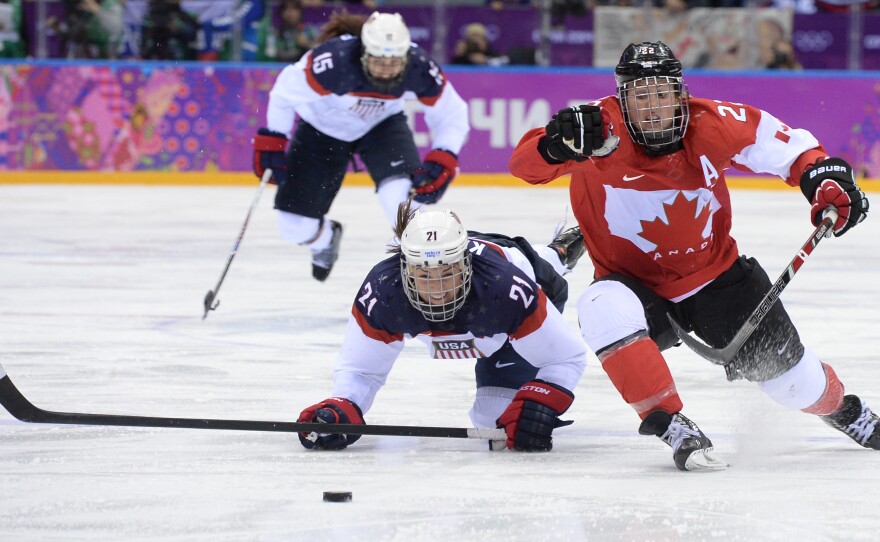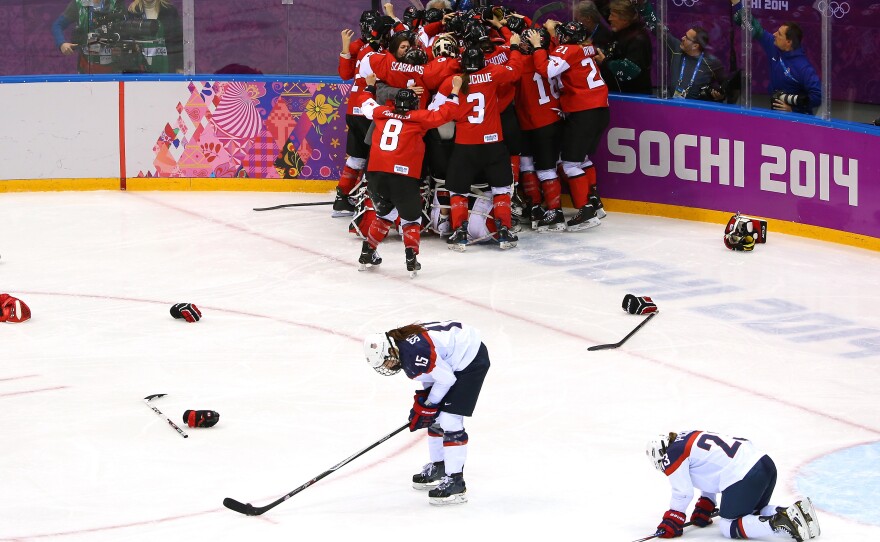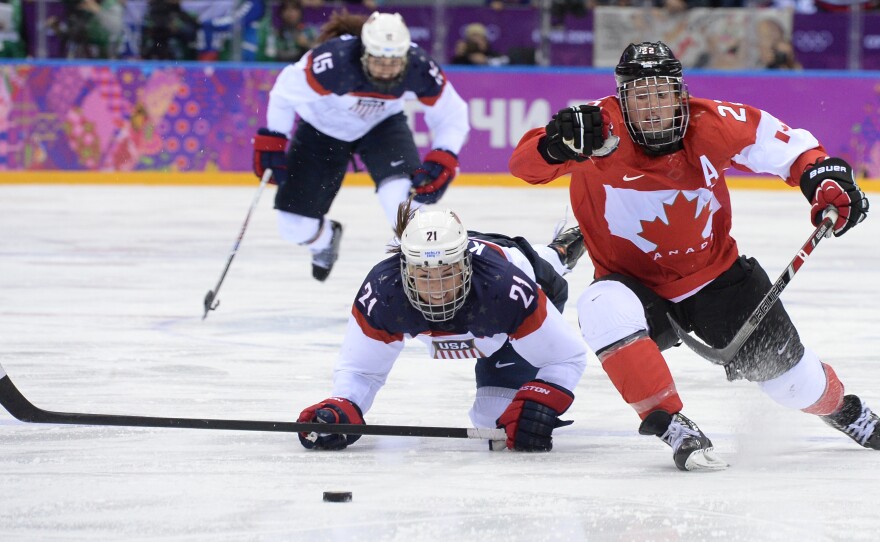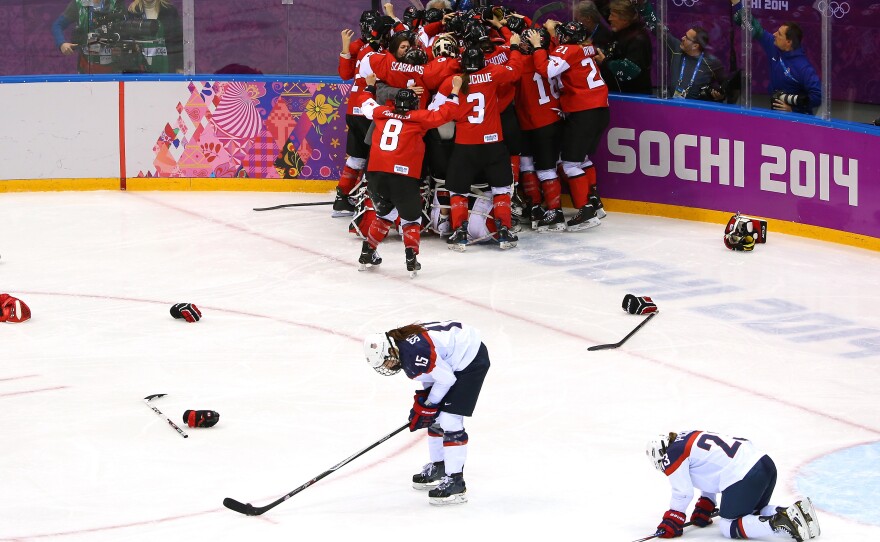



With a 2-0 lead late in the game, it seemed like Team USA would finally overcome archrival Canada on hockey's largest stage Thursday, winning an Olympic gold medal that has eluded it for 16 years. But the gold medal went to Canada after a spirited comeback forced overtime.
The Canadians scored on a five-on-three power play, after a sequence of penalties on both teams, including a checking call on Team USA's Hilary Knight. Forward Marie-Philip Poulin scored on an assist from Laura Fortino. Under Olympic rules, the "golden goal" ended the game with a score of 3-2.
The gold medal game in Sochi was a tense defensive contest between teams that had steamrolled their way into the final.
U.S. captain Meghan Duggan had scored early to put the Americans on the board, and they seemed to be headed for a 2-0 victory. But the Canadian squad grew increasingly desperate to defend the gold they won four years ago in Vancouver. And they scored two goals late in the third period to stun the Americans and send the game to overtime.
Canada started its comeback with just under 3:30 remaining, as Brianne Jenner scored while she angled toward the U.S. goal from the left circle. The shot seemed to get deflected in traffic on its way into the net.
That led Canada to pull its goalie with 1:35 remaining, to try to exploit a six-five advantage on the ice. The move nearly backfired within seconds, as the puck was sent flying down the ice just after a faceoff. It banged harmlessly off the left post.
But the Canadians evened the score with just 55 seconds remaining, as forward Poulin took a pass from the corner to put the puck past U.S. goalie Jessie Vetter from the front of the net.
The turnabout came after the U.S. team retracted into more of a defensive posture with a two-goal advantage, especially as the game wound down under the 10-minute mark. The Americans still ventured into the Canadian end, but it was often only in small numbers, to harry the opponents into taking more time off the clock.
As you might expect in a game between two elite teams who know each other very well, many of the stats from the gold medal match were virtually even. Through the first five minutes of overtime, the U.S. women had taken 28 shots, while the Canadians had taken 30. They each had eight minutes of penalty time. And both teams' players delivered hard hits and checks that could only be borne of unaffectionate familiarity.
"It's always revenge against [Canada]," Duggan recently told USA Today.
Vetter and her Canadian counterpart, Shannon Szabados, were stellar, particularly early in the match, when they turned away all shots in a first period that included five power plays (three for the U.S. and two for Canada).
The first period ended with no score, as the game's opening minutes were dominated by trenchant defense, from physical checks and challenges to sharp goalie play. Things settled down somewhat in the second period, with only three penalties called.
The Americans finally broke through in the second period, going up 1-0 on Duggan's wrist shot from the left circle that found the top corner of the net. The goal came after the Americans poked the puck away as the Canadians tried to get it past their own blue line; Jocelyne Lamoureux got an assist on the goal.
American forward Alex Carpenter scored her fourth goal of the Olympic tournament early in the third. Her goal from the edge of the crease came after a laserlike pass from Knight.
The U.S. squad played with tenacity and strong defense, as players churned in front of the U.S. net and flung their bodies into the path of oncoming shots.
They were also aided early on by a handful of miscues by their Canadian opponents, including one play in which the puck skittered past a lone Canadian who had camped out to the left of the U.S. goalie's left flank while her attention was focused on the play to her right.
The two neighboring countries dominate this Olympic event, but the U.S. has won it all only once, in the inaugural gold medal match of 1998. Canada took gold in title games against the U.S. in 2002 and 2010; it beat Sweden for gold in 2006.
The Canadian win came hours after Switzerland rallied from a 2-0 deficit to stun Sweden, 4-3. In case you need more proof that the right two teams played for gold today, consider that the U.S. team had earlier beaten Switzerland 9-0; Canada beat it 5-0.
Copyright 2014 NPR. To see more, visit www.npr.org.






